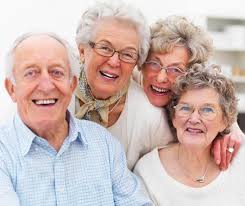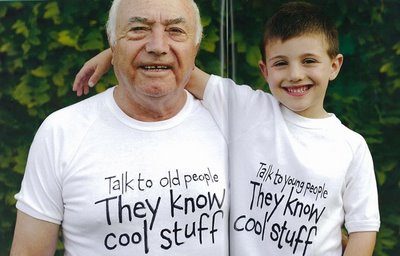In my previous post Old and Depressed: The Not So Golden Years, I talked about the five main causes of elderly depression. Getting old doesn’t mean you have to be depressed. Old age doesn’t reduce the effectiveness of proper treatment. I’ve witnessed with my 70+ old uncle how proper treatment of depression can bring a person back to life, so to speak. Treatment can take time and it requires love and support from family and caregivers. So what can be done to alleviate or prevent elderly depression?
- A good geriatric doctor. Geriatric doctors are trained to deal with illnesses and impairments that are specific to older people. A geriatric doctor has many diagnostic tools such as the Geriatric Depression Scale to identify depression from normal parts of aging. They are also trained to deal with chronic pain and dementia which bring on depression. Unfortunately finding a geriatric doctor who accepts new patients can be tough. There’s few of these specialized doctors at a time when most of the US population is hitting old age.
- Maintaining Good Physical Health. Some of the physical risk factors for depression can be overcome by keeping your body fit. Physical exercise decreases depression because of endorphins released into the bloodstream. It also keeps muscles toned and fit. Exercise doesn’t have to be strenuous at this age. It can range from simple stretching or bowling to taking walks or swimming. Keeping in good physical health can be hampered by disease or permanent disabilities so be kind to yourself if you’re not able to exercise regularly.
- Medications. Ironically, while medications can cause depression they also reduce or control depression. Antidepressants are recommended for severe depression. These take longer to work in older adults and results might not be seen for 6 to 8 weeks. Remember that medication works a bit differently on everyone and there might be side effects. Monitor antidepressant dosage and make sure they aren’t causing paranoia, anxiety or other unwanted effects.
- Psychotherapy. Psychotherapy for an elderly person works as good as for the younger crowd. Psychotherapy helps deal with grief and the loss of independence, health, home and lifestyle. Older adult psychotherapy has to respect personal limitations such as poor eyesight and hearing, physical discomfort and any physical illness.
- Mental stimulation. Social activities keep you young at heart. You enjoy life more when you’re with people you can connect with through shared life experiences. Hanging out in the food court with friends, walking in the mall, playing bingo or bridge – such activities fight isolation and depression. Even doing crosswords or playing computer games stimulates parts of the brain that make you feel good.
- Lifestyle changes. Reducing high blood pressure and cholesterol not only makes you feel better, it also cuts down the number of medications you need to take. Eat properly and on schedule. Cut down or stop smoking. This one can be really difficult, as I know from my uncle. He’s tried quitting lots of times but can’t. Part of it is cigarettes make him feel good. Instead of being refused cigarettes, he’s allowed to smoke. As a caregiver you have to realize that what you consider a ‘bad’ lifestyle choice might be the only thing still bringing joy to your loved one.



